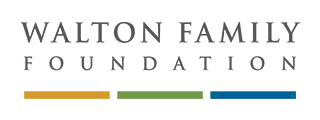The Public Education Reform Amendment Act led to numerous reforms that changed nearly every aspect of DC public schools. In this project, we focus on one consequence of the reforms by examining the impact of principal replacements that began in 2007 on student achievement.
Faced with a struggling public school system, the District of Columbia (DC) took a significant step toward school reform with the Public Education Reform Amendment Act (PERAA), implemented before the 2007–2008 school year. PERAA led to numerous reforms that changed nearly every aspect of DC public schools, including school governance structures, human capital policies, leadership, and resource management. Along with the policy changes, PERAA led to investments from private philanthropies, which sought to expand charter schools, hire and train teachers differently, and provide additional compensation to teachers in the DC Public Schools in exchange for greater accountability for performance. The Walton Family Foundation alone invested more than $12 million in DC as part of its Improve Existing Schools initiative.
Faced with a struggling public school system, the District of Columbia (DC) took a significant step toward school reform with the Public Education Reform Amendment Act (PERAA), implemented before the 2007–2008 school year. PERAA led to numerous reforms that changed nearly every aspect of DC public schools, including school governance structures, human capital policies, leadership, and resource management. Along with the policy changes, PERAA led to investments from private philanthropies, which sought to expand charter schools, hire and train teachers differently, and provide additional compensation to teachers in the DC Public Schools in exchange for greater accountability for performance. The Walton Family Foundation alone invested more than $12 million in DC as part of its Improve Existing Schools initiative.
A comprehensive evaluation of the effects of PERAA on student achievement is a compelling goal, but because so many factors have changed at the same time, it would be difficult to disentangle the effects of PERAA from other changes. In this project, we focus on one consequence of the PERAA reforms by examining the impact of changes in school leadership that began in 2007 on student achievement. In an effort to boost student achievement, the newly installed chancellor of DCPS, Michelle Rhee, replaced many school principals as one of her first reforms. For the 2008–2009 school year, 39 percent of the principals in the school district—51 individuals—did not return, and more were replaced in the following years.
To measure the impact of new principals in DCPS, this project analyzed the changes in student achievement that occurred in schools with changes in school leadership. To distinguish the effect of new principals from other changes that may have affected student achievement in DCPS, we also compared these changes to changes in achievement in schools that kept the same principal.
The study found that new principals improved the average student’s achievement in reading by an average of 4 percentile points. It took three years for new principals to achieve measurable achievement gains. Achievement in mathematics showed a similarly positive trend, though the results were not as strong. Achievement gains in both math and reading were larger and happened faster in middle schools than in elementary schools. New principals improved the average middle school student’s achievement by 9 percentile points in math and 8 percentile points in reading. The improvements were large enough to have increased proficiency rates from 36 to 47 percent in math and from 28 to 47 percent in reading in the affected middle schools.



